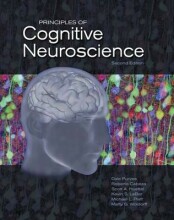Introduction to the field of organizational behavior
57 important questions on Introduction to the field of organizational behavior
How do we call an arrangement whereby employees work from home one, or more days per month rather than commute to the office?
What are the risks of remote work?
- Social isolation
- Less promotional opportunities
What are the advantages and disadvantages of telecommuting?
advantages;
- higher productivity of the telecommuters
- reduces greenhouse gas emissions
- reduces real estate and related costs for the company
disadvantages;
- more social isolation reported by telecommuters
- receive less word of mouth information (tips of coworkers during coffee break)
- lower team cohesion and weaker organizational structure
- Higher grades + faster learning
- Never study anything twice
- 100% sure, 100% understanding
How does one get a better work-life integration?
- Integrating multiple roles (meeting while walking)
- Flexible work schedule
- Work and non-work is aligned with personality
- Boundary management
How do we call the observable demographic or physiological differences in people, such as race, ethnicity, gender, age and physical abilities?
What are the different types of task performance?
- Proficiency
- Adaptivity
- Proactivity
How do we call differences in psychological characteristics of employees?
What two components make up organizational citizenship?
- Helpfulness
- Support
How do we call when members of a team have different knowledge and skills?
What are the advantages and disadvantages of a high diversity work place?
- high informational diversity teams tend to be more creative, and make better decisions
- high diversity workplaces are more representative for most communities, are better at recognizing and addressing community needs
disadvantages;
- it takes longer to perform effectively due to communication problems.
- increase risk of dysfunctional conflict, causes reduction of information sharing and satisfaction of co-workers
What does the MARS model stand for?
- Motivation
- Ability
- Role perception
- Situation
(If one is absent the employee will not perform well)
How do we call making decisions and taking actions guided by research evidence?
What makes up the M in the MARS-model?
- Motivation
- Direction
- Intensity
- Persistency
How do we call a basic beliefs or knowledge structures?
What makes up the A in the MARS model?
- Ability
- Learned capabilities
- Natural aptitudes
On which anchors is organizational behavior built?
- systematic research anchor
- multidisciplinary anchor
- contingency anchor
- multiple levels of analysis anchor
What makes up the R in the MARS model?
- Role perception
- Specific duties and outcomes
- Clarity desired behaviour
- Clear priority
What makes of the S in the MARS model?
- Situation
- Constraints or facilitates behaviour
- Guides and motivates
Which anchor of organizational behavior is described; the field of OB should welcome theories an knowledge from other disciplines, not just from it's own isolated research base
How to implement evidence based management?
- Being skeptic
- Embracing collective knowledge rather than individual's knowledge
- Taking a neutral stance
- Using stories as a base but not a main foundation
Which anchor of organizational behavior is described; recognizing that the effectiveness of a variable or action depends on the characteristics of the situation or the people involved.
Why is evidence based research often overlooked?
- There are too many ideas to figure out which are evidence based
- There is difficulty matching specific research to a specific problem
- Rewards are given for ideas not for research
- Perceptual errors
- Biases
Which anchor of organizational behavior is described; what goes on in organizations can be analyzed on three levels; individual, team and organization.
What is the contingency anchor?
How do we call the concept of how effective an organization is in achieving the outcomes the organization intends to produce?
What are domains of challenges for organizations?
- technological challenges
- emerging employment relationships
- globalisation
- diversity
Of which two concepts does emerging employment relationships consist?
telecommuting
What is the practical orientation anchor?
Which perspectives of organizational effectiveness are there?
- the open system perspective
- the organizational learning perspective
- the high performance work practices perspective
- the stakeholders perspective.
What is the systematic research anchor?
What are the key features that make an organization effective?
- a good fit with their external environment
- are a learning organization
- have efficient and adaptive internal subsystems
- satisfy the need of stakeholders.
Which perspective of organizational effectiveness is described; effectiveness of organizations depends on the external environment for input, and on their internal subsystems for output.
Of which two concepts does the open system perspective consist?
- match with the environment
- internal match
When does an organization fit with it's environment?
What key features does an organization need to create an internal match?
- the subsystems in an organization need to work together to transform inputs into outputs.
- work together to provide desired outputs (products, services), and hold back undesired outputs (pollution, waste)
What are inputs and outputs of an organization?
- raw materials
- human resources
- information
- financial resources
- equipment
- products
- services
- support
- waste
- pollution
Which indicators of the effectiveness of an organization's subsystems in transferring inputs into outputs is described; produce more goods or services with less labor, materials and energy.
Which indicators of the effectiveness of an organization's subsystems in transferring inputs into outputs is described; extend to which an organization conforms to it's external environment.
Which indicators of the effectiveness of an organization's subsystems in transferring inputs into outputs is described; designing products and work processes that are superior to what the competition has to offer.
Which perspective of organizational effectiveness is described; organizational effectiveness depends on the organization's capacity to acquire, share, use and store valuable knowledge.
Of which two concepts does the organizational learning perspective consist?
- intellectual capital
- learning processes.
Which concept of the organizational learning perspective is described; a company's stock of knowledge.
In which three forms does the intellectual capital exist?
- human capital
- structural capital
- relationship capital
How do we call the stock of knowledge, skills and abilities among employees that provide economic value to the company?
How do we call knowledge embedded in an organization's systems and structures?
How do we call the value derived from an organization's friendships with customers, suppliers and others?
Which organizational learning processes are there?
- acquiring knowledge
- sharing knowledge
- using knowledge
- storing knowledge.
Which organizational learning process is described; bringing in knowledge from the external environment and from discovery.
Which organizational learning process is described; distributing knowledge throughout the organization.
Which organizational learning process is described; the applying of knowledge to improve the organizational processes.
Which organizational learning process is described; retaining knowledge, organizational memory.
What are the high performance work practices?
- employee involvement
- job autonomy (self-organization)
- competency development
- rewards for performance and competencies
What high performance work practices cause; strengthened employee motivation, improved decision making, accelerated organizational responsiveness, and increased employmee commitment to change.
What high performance work practice is described; recruiting, selecting and training employees so they have useful skills.
What high performance work practice is described; linking performance and skill development to various financial and non-financial rewards valued by employees.
Which perspective of organizational effectiveness is described; organizational effectiveness depends on focussing on relationships with parties in the external, or internal environment.
What are ways for an organization to match it's environment?
- adapt to the environment (products, services based on needs of customers)
- influence the environment
- move to a more favorable environment
The question on the page originate from the summary of the following study material:
- A unique study and practice tool
- Never study anything twice again
- Get the grades you hope for
- 100% sure, 100% understanding
































